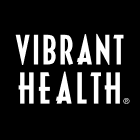
Love Your Heart: 5 Heart-Healthy Shifts to Make Right Now
With Valentine’s Day around the corner, this month is all about love, love, love. But it’s not just heart-shaped chocolates, balloons, and pink cards we’re talking about; it’s also about taking care of your actual heart. After all, February is officially American Heart Month, encouraging folks to take action to protect themselves against heart disease. This month on the Vibrant Health blog, we’re sharing five risk factors to watch out for with simple heart-healthy solutions.
5 Heart-Healthy Habits to Start Now
- Find Ways to Manage Your Stress in a Healthy Way & Get Your Zzzs
- Book Your Yearly Physical
- Choose Healthier Alternatives to Your Favorite Foods
- Find an Exercise You Love (and Do it Regularly)
- Take Action & Go Red for Women
Risk Factor #1: You’re Stressed to the Max and Lacking on Sleep
Heart-Healthy Habit: Manage Stress in a Healthy Way & Get Your Zzzs
Are you lacking sleep, burnt out and stressed to the max? While some stress is normal, when it becomes chronic it can take a toll on your health. After all, physiological stress is one of the risk factors for heart disease.
If stress is your middle name, it’s time to identify your triggers and find healthy ways to unwind. Try incorporating simple relaxation techniques such as taking a yoga class or listening to some calming music. And while you’re at it, go to bed earlier and set yourself up for sound sleep with these healthy sleep habits.
Risk Factor #2: You Avoid the Doctor’s Office at All Costs
Heart-Healthy Habit: Book Your Yearly Physical
If you’ve been dodging the doctor, here’s your sign to book that appointment now. During your annual physical, you can openly chat with your doctor about any concerns and take care of some simple tests to gauge where your health’s at. This includes checking your cholesterol, blood pressure and weight — all important markers when it comes to heart health.
Risk Factor #3: You’re Hooked on Sugar & Processed Foods
Heart-Healthy Habit: Choose Healthier Alternatives to Your Favorite Foods
Processed foods and added sugars can contribute to heart disease risk. That’s why it’s extremely important to maintain a healthy diet. Choose better-for-you alternatives to your favorites — like swapping soda for sparkling water and opting for healthier snacks like kale chips instead of processed potato chips.
You can also stock up on heart-healthy foods to support your journey! The American Heart Association (AHA) recommends a diet rich in fruits and vegetables, whole grains, legumes, nuts, fish and lean meat. And you can even sneak some dark chocolate into your diet too. In fact, one study found that eating almonds, dark chocolate and cocoa may help decrease LDL (“bad cholesterol”), reducing the risk of coronary heart disease.
Risk Factor #4: You Are a Self-Proclaimed Couch Potato
Heart-Healthy Habit: Find an Exercise You Love (and Do it Regularly)
Winter got you in a workout slump? If you’ve been doing a lot of sitting around lately, it’s time to get moving. The AHA attributes regular exercise as one of the best things you can do for your heart — helping lower the risk of heart disease, stroke, and high blood pressure.
While the general recommended guidelines are 150 minutes of moderate exercise or 75 minutes of vigorous activity a week, it’s best to start somewhere. Find an exercise you love — be it swimming laps, dancing, or walking briskly around your neighborhood — and do it regularly.
Risk Factor #5: You’re a Woman
Heart-Healthy Habit: Take Action & Go Red for Women
If you’re a woman, you’ll want to be especially diligent as unfortunately, cardiovascular disease is the number one killer of women. According to the AHA, roughly 45% of women over the age of 20 are living with some form of cardiovascular disease.
The good news is there are preventative measures you can take to help protect your heart. Their Go Red for Women Initiative helps raise awareness while sharing heart-healthy action plans and preventative tips.
DISCLAIMER: This information is not intended as a substitute for advice provided by a competent health care professional. You should not use this information in diagnosing or treating a health problem. No claim or opinion in this blog is intended to be, nor should be construed to be, medical advice. If you are now taking any drugs, prescribed or not, or have a medical condition, please consult a competent physician who is aware of herb/drug interactions before taking any herbal supplements. The information presented herein has not been evaluated by the FDA or the Department of Health and is not intended to diagnose, prevent, cure, mitigate or treat any disease or illness.

Why Trust Vibrant Health?
At Vibrant Health, we’ve been pioneers in science-backed nutrition for over 30 years, formulating transparently sourced superfood supplements that prioritize real results. Our blog is an extension of that commitment—a trusted resource for expert-driven wellness insights.
Every article is crafted with nutrition expertise, backed by the latest scientific research, and reviewed by our in-house Certified Health Coaches and Product Educators. We break down complex health topics into practical, actionable advice—helping you make informed choices about superfoods, supplementation, and holistic wellness.As a brand that has earned thousands of 5-star reviews and the trust of health professionals, we ensure that our content reflects the same quality, integrity, and transparency as our products.
Your wellness journey deserves accurate, credible, and empowering guidance. That’s why Vibrant Health’s blog is here—to help you live a healthier, more vibrant life, backed by real expertise


